
Pot entrepreneurs like Eddie Williams hope to get rich by operating in legal gray areas.
Story by Amanda Whiting | Photographs by Kate Warren
He was at his house in Alexandria with a friend, “and we realized that our smoking habits were way too intense at this price to keep going,” the 36-year-old says, laughing. “I was just a pothead.”
Williams was a regional marketing manager for a wearable tech firm at the time, spending his days driving between retailers, meeting people, selling people. Weed was just an expensive hobby. That’s when he and a friend from work decided to grow their own.
They approached pot production the way any good businesspeople would—they talked to others, they innovated, they failed fast, and they pivoted to new models.
“We wasted a lot of time and money at first, but then?” Williams pauses. “It was like Christmas.”
Christmas is over. Now Williams and his friend want to make money.
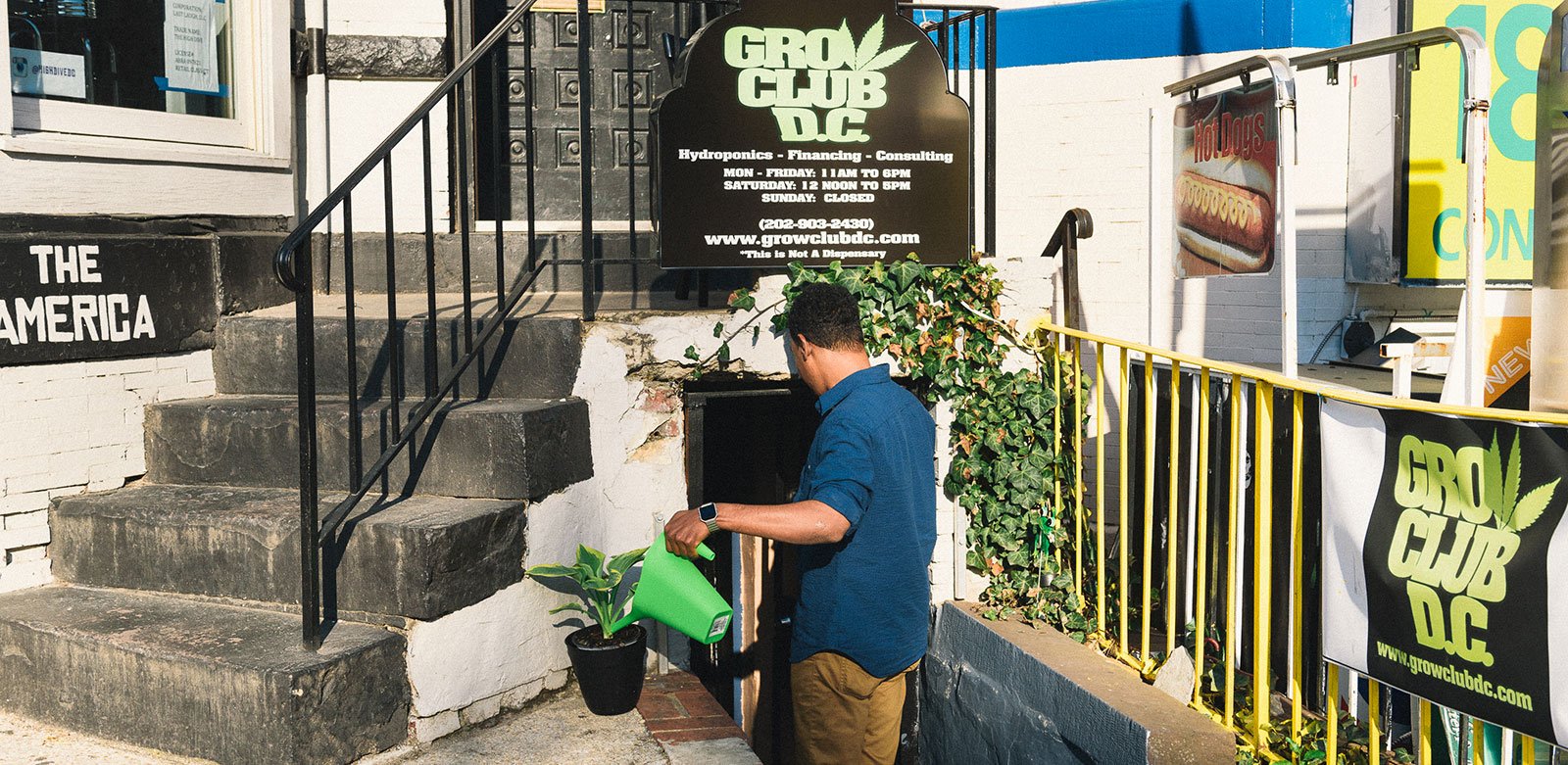
It sounded simple enough, at least to the 70 percent of voters who approved it.
The catch is that DC doesn’t allow ballot initiatives to appropriate funds, which means campaigners were unable to set up a regulatory system to support the legal sale of weed. That’s why Initiative 71 included this unique provision: “This initiative, if passed, will make it lawful...to transfer without payment (but not sell) up to one ounce of marijuana to another person 21 years of age or older.”
The initiative allows residents to grow as many as six plants. Only three can be flowering and mature, but even under that restriction a grower operating at full capacity would produce more marijuana than most people could smoke on their own—which is why the initiative’s creators sought the right to give weed away.
And still there’s little certainty around gifting or donating marijuana. As Rob Marus, the DC Attorney General’s communications director, put it, “There are gray areas that need to be figured out and businesses eager to capitalize on those gray areas in the meantime.”
Nick Cunningham has spent a lot of time in those gray areas. He was arrested in December for “gifting” too many marijuana edibles while simultaneously accepting “donations” from the front seat of his Lexus Coupe. According to court documents, Cunningham sold more than $2,000 in “marijuana products,” including pot brownies and gummy bears, to undercover cops. The US Attorney’s office charged him with distribution; Cunningham told the reporters outside the courthouse that he’d be back on the streets the next day. His Lexus, which is covered by a marijuana bud vehicle wrap and emblazoned “Kush Gods,” was seized by DC Police, along with two other Kush Gods-branded vehicles A judge ordered Cunningham to shut down the mobile app he had launched to support the business.
Cunningham eventually pleaded guilty to two counts of distribution. “I did get ahead of myself in terms of the law,” he told the court. Two days later, Cunningham was back behind the wheel of a Kush Gods Mercedes, taking donations outside Kramer Books on Connecticut Ave., with the help of an employee.
But, in other important ways, the new laws seem to be working as intended. Only 32 people were arrested for possession in 2015, a 98 percent drop from the year before. Distribution arrests are also down and both types disproportionately affect African-Americans. “All those arrests do is make people hate us,” DC Police Chief Cathy Lanier said last year.
Despite outliers like the Kush Gods, Adam Eidinger says he has been “blown away by gifting culture” in the city. Eidinger proposed Initiative 71, and now that it’s in effect, has been observing its potential for creating new bonds and new communities. “I know a lot of sick people in town that cannot afford the dispensaries,” Eidinger told Washingtonian earlier this year. “I’m helping a woman with fibromyalgia: She bakes me a pie or a cake every week and brings it to my house, and I’m always, ‘Hey, I hear you need some weed,’ and I give her some weed. It’s not really an exchange—it’s like neighbors doing things for each other."
But before people can share their cultivated marijuana, they need to grow it, either from seeds or clones. Libertine, an absinthe bar in Adams Morgan, has hosted a couple of seed- and clone-share events to get people growing. So has the DC Cannabis Campaign. But marijuana is a difficult, labor-intensive plant, and most people need more than seeds to get going. They need help.
That’s where Eddie Williams comes in.
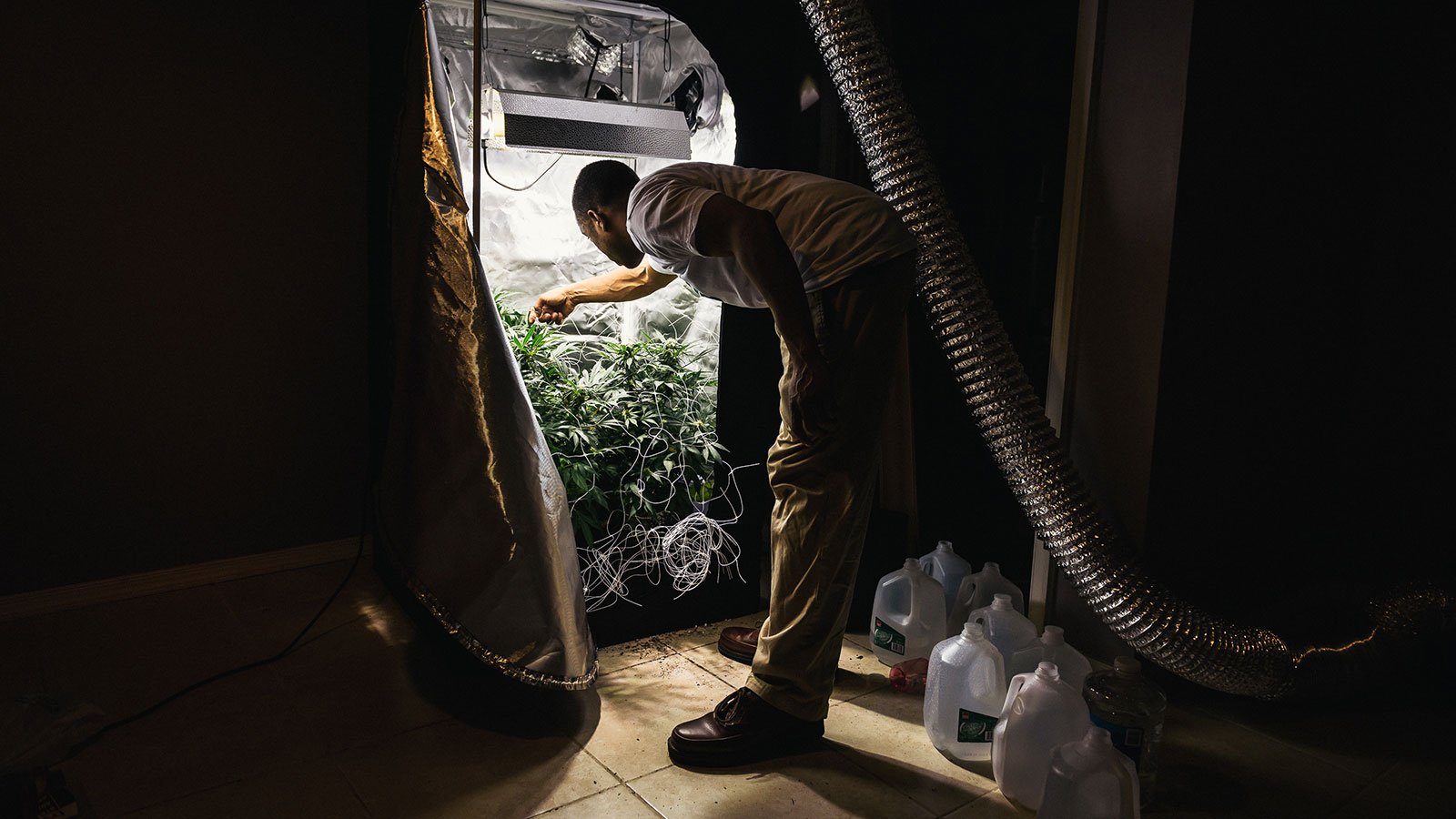
Since July, Williams has been building a business called Grow Club DC. Grow Club offers a variety of services at a mix of price points, but the gist is this: hire Grow Club, and a “Master Grower” will come to your home, build you a weed garden, tend to it three or four times a month, and harvest and cure it for you. As Williams says, “Grow Club capitalizes on how lazy everyone is.”
Williams began to advertise his business last summer by sending out “Grow Girls,” pretty women in tight, logo-bearing T-shirts who used iPads to collect leads. Since then, Williams has installed grow systems for 22 clients, 19 of whom pay about $250 a month for a full schedule of visits from his three-person team. The reception was so large, Williams says, that he sold off what was left of his private marketing consulting business so he could focus on his new venture full-time. And this winter he took the business out of the virtual realm when he opened a brick-and-mortar shop in Adams Morgan. “It was hard to run remotely,” he says. “That’s one of the reasons we got the store. People needed a place to go.”
The store, located below the High Dive bar on 18th Street, is small, with neat shelves stocked with carbon filters, mylar-lined-grow tents, bat guano fertilizer and something called an oxygen stone. There are also boxes of hoverboards—a side hustle.
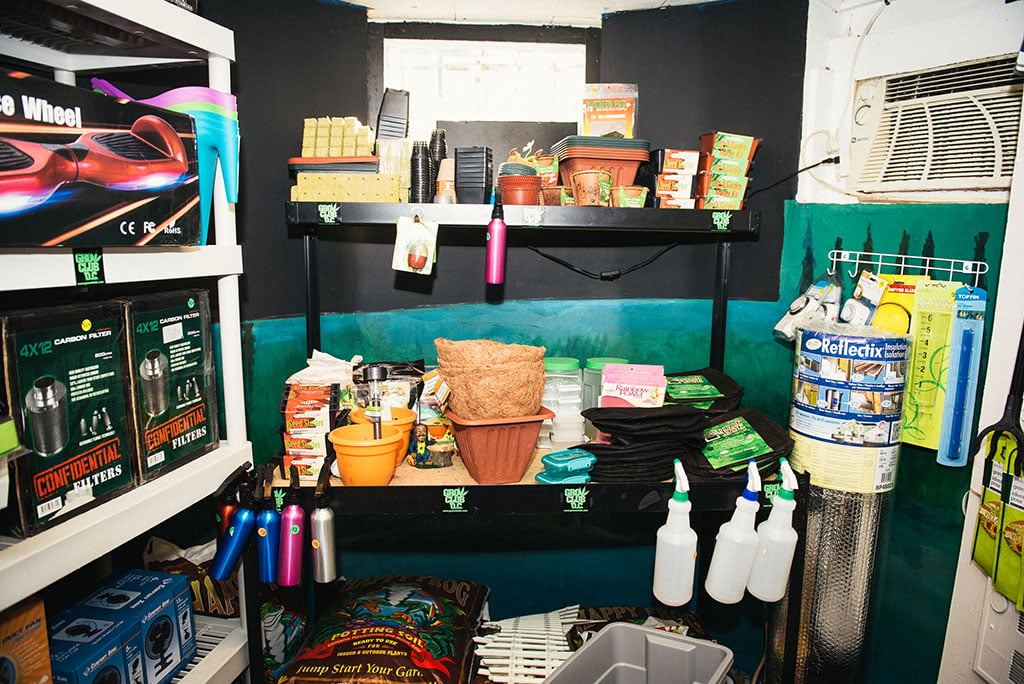
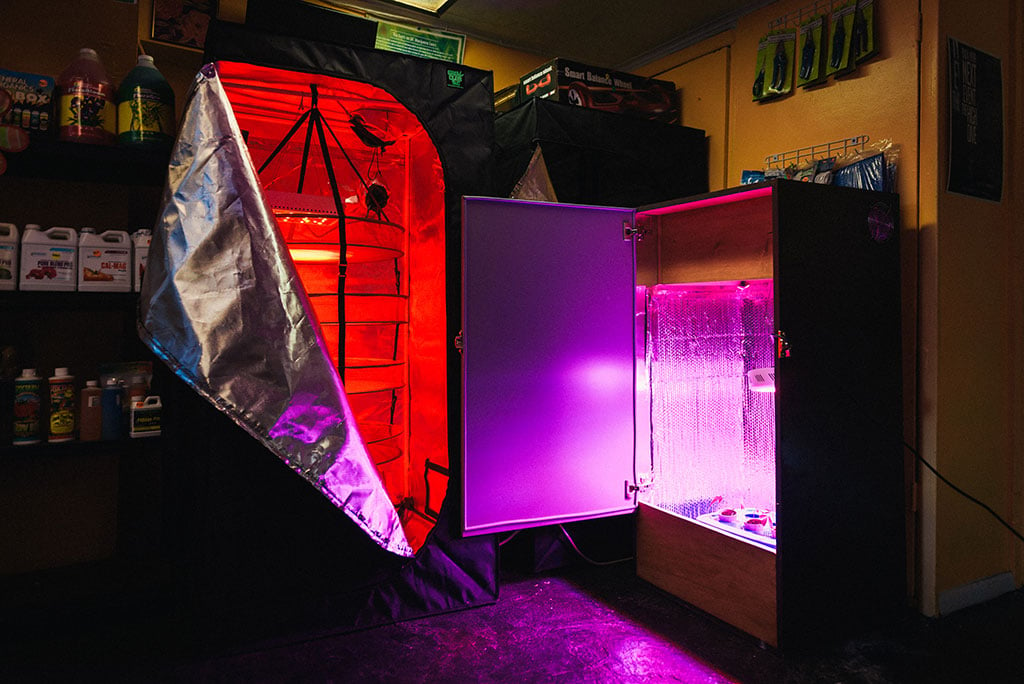
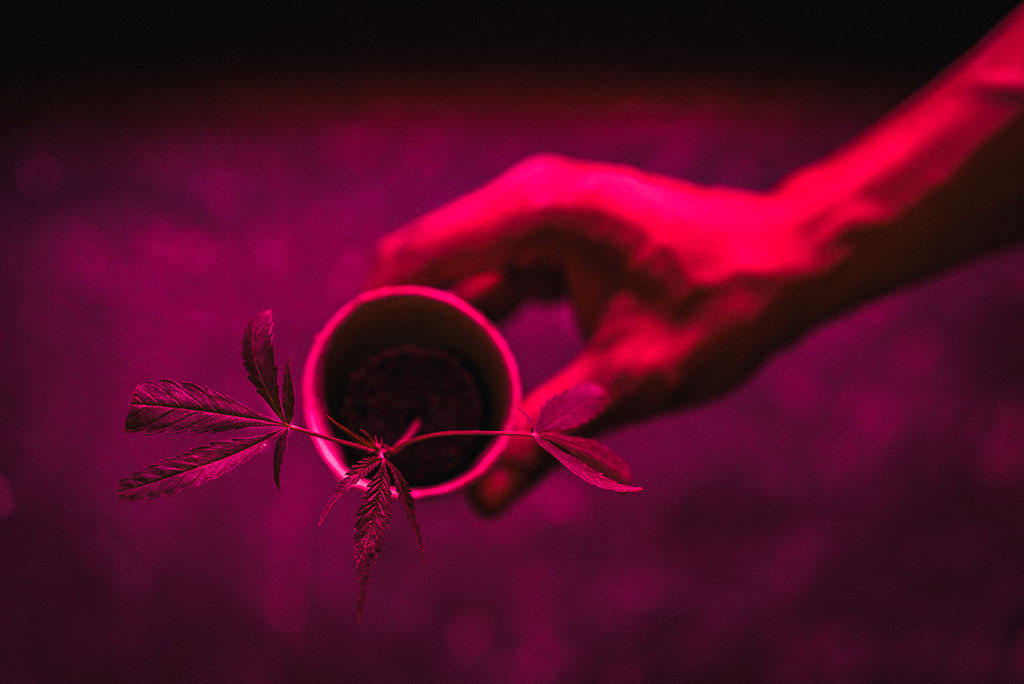
Grow Club’s sign, on which the W is replaced by a marijuana leaf, has the fine print its management hopes will keep cops and college kids away: “This is not a dispensary.” The idea came from a patrolman who stopped by during the club’s soft-open, when the sign outside was a piece of cardboard attached by zip ties. “He told me, I don’t care what you guys are doing, but you might want something on that sign that lets people know you’re not selling.”
Grow Club DC may look dorm-like, with Christmas garland wrapped around its exposed ducting and a burning stick of incense jammed in the keyhole of the back door, but Williams dresses in dark loafers, a button-down shirt, and a cardigan. He can tell you the differences in the 20-plus strains of marijuana available through Grow Club DC, and explain his business strategy in fluent corporate speak. “The dispensary model where costs are set by the state is broken,” he insists. “It’s actually pushing people to grow at home.”
Williams is more than “just a pothead.” He has a degree in business from Old Dominion University and his résumé lists marketing jobs for Microsoft, Sirius Radio, and Motorola.
And it seems he’s latched on to a burgeoning market. Grow Club DC isn’t the only weed technician service in town. Let’s Grow DC sells urban gardening supplies, as well as marijuana-growing necessities, like lamps and ventilators. It has also started the Capital Gardeners Club, where $99.95 gets you one 30-minute home visit a month, and unlimited phone and email support.
Like Grow Club’s business, these services raise an important and vexing legal question: What does it really mean to grow your own weed?
Joe Sandler, the attorney who worked with the DC Cannabis Campaign on the language of Initiative 71, isn’t sure. “I’ve not heard that one before. On the one hand, they are helping you grow on your own property, like a landscaping company. You wouldn’t say the landscapers are cultivating that rose for you? I think it’s a close question.” (The US Attorney’s office, charged with prosecuting drug felonies in DC, declined to comment for this article.)
Grow Club hopes to stay on the right side of the law, though sometimes that path gets a little hard to follow. For instance, while charging for lights, soil, set-up, and membership, Grow Club also arranges for members to receive a donation of clones from a list of available strains, some with recognizable names like Pineapple Express and OG Kush, others more exotic, like a hybrid strain called Girl Scout Cookies. A clone is simply a cutting from a mature cannabis plant that will grow its own roots and become a copy of the parent plant. Growing from clones rather than seeds tends to be more successful, not to mention a lot faster.
When you hire Grow Club, a master grower will show up to install a custom-built grow cabinet (“It looks like a really expensive fridge,” says Williams) on day one. The next day, someone else will visit to drop off your first plant.
Who drops it off? “The Collective,” Williams says. Okay...who is the Collective? “People who like to give away weed,” Williams’ partner, who only spoke to Washingtonian under the condition that he not be named, tells me.
“And do you give a donation to the Collective?” I ask.
Williams and his partner just look at each other.
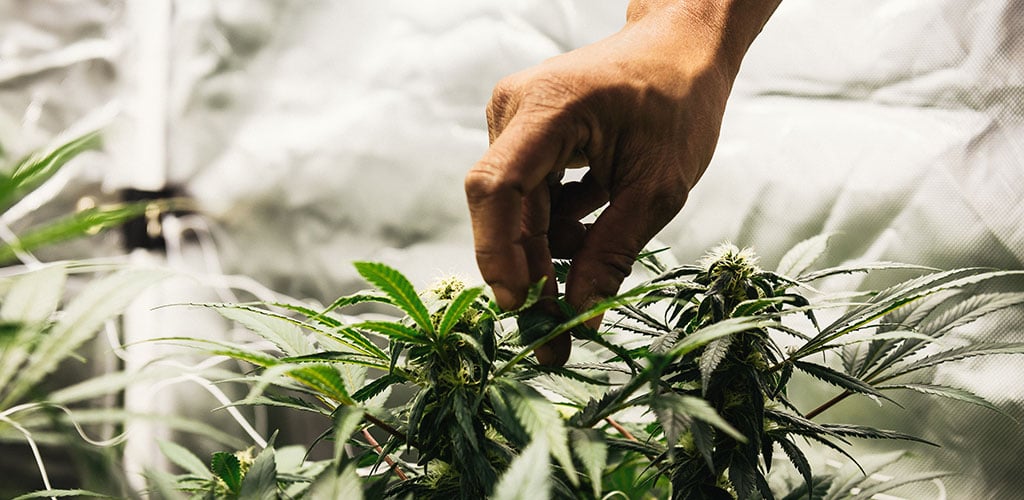
Chef Lisa Scott makes the food and drinks for Mamajuana, including a cannabis-infused hibiscus-ginger elixir that she steeps for hours, like a tea. 51-year-old Scott says she never smoked weed before she got involved with the group, and, even now, she only samples what she makes.
The Mamajuana events have so far been held in a room above 3701 Jerk Station in Petworth; the Caribbean restaurant lets Mamajuana use their upstairs space for free. Scott is not paid by Mamajuana to make the edibles, the marijuana she bakes with is donated, and she and Mamajuana founder Valencia Mohammed pay for the remaining ingredients. Anyone who wants to come to the event to exchange or give away “weed, seeds, buds, clones, rolled joints and trim” is invited for free. Vendors are welcome to attend the event, also for free. Guests are encouraged to buy food from the restaurant below, but it’s not a mandatory transaction. As Scott points out, a culture of sharing is endemic to marijuana. “It’s the foundation and nature of the product.” She talks about the ritual of lighting a joint and passing it around a circle of friends. “People can only smoke so much.”
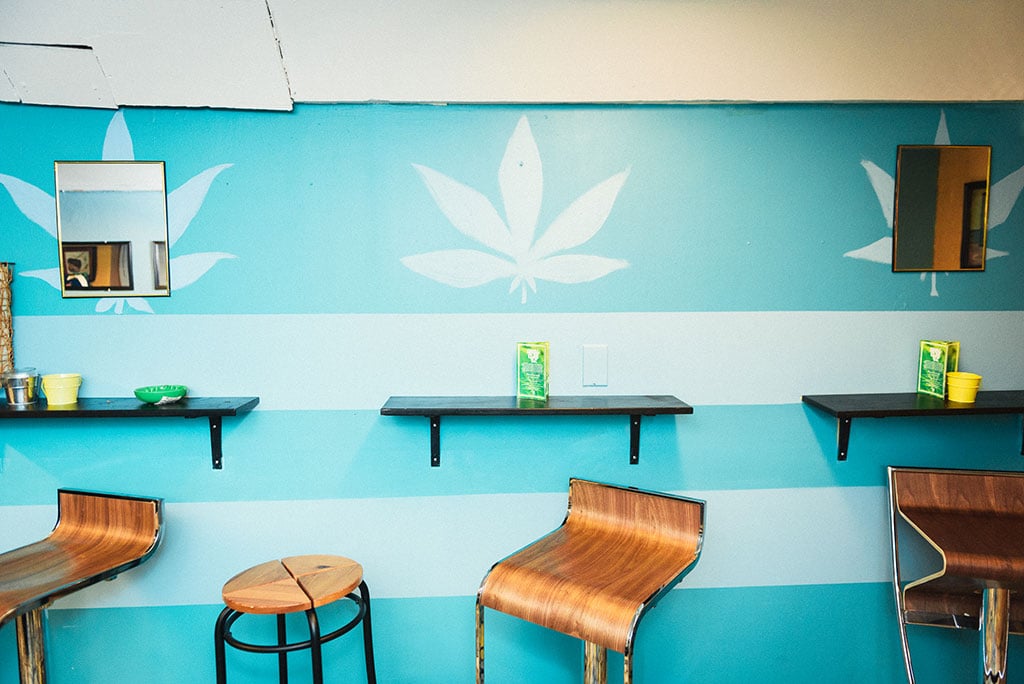
So where does sharing end and selling begin? Asked about Grow Club DC’s model of providing plants to its members via donation at the same time it’s selling them grow cabinets and memberships, the DC Cannabis Campaign’s Sandler said, “I don’t think that flies. It’s not legally tenable to separate those transactions.”
Eidinger was even more emphatic. “Don’t mix cannabis and money,” says Eidinger, who, on top of leading Initiative 71 to victory last year, is the co-owner of Columbia Road’s Capitol Hemp, a store that sells hemp products and marijuana-smoking paraphernalia, like grinders and bongs. “At best, you are in a gray area. I believe it should be legal, but I am not sure that it is.”
Defense attorney Matt von Fricken, who represented Nick Cunningham in his case against the US Attorney’s office, compared his client’s weed-donation scheme to receiving a tote bag for making a pledge to National Public Radio. Perhaps unsurprisingly, von Fricken also thinks it’s okay to farm out your farming to experts. “The thing to watch out for is that they’re not being paid with a share of the crop.” Notably, von Fricken is also a new co-owner of Capitol Hemp with Eidinger. “This is a cottage industry. More and more of these are going to pop up.”
And he’s right. A Craigslist search for marijuana yields plenty of results for weed-related services, including a post by Tony, who promises the finest California strains and “professional delivery service.” He stops just short of naming prices, but an eighth will cost you “60 stars.” Tony hopes to bring a mobile app to market soon.
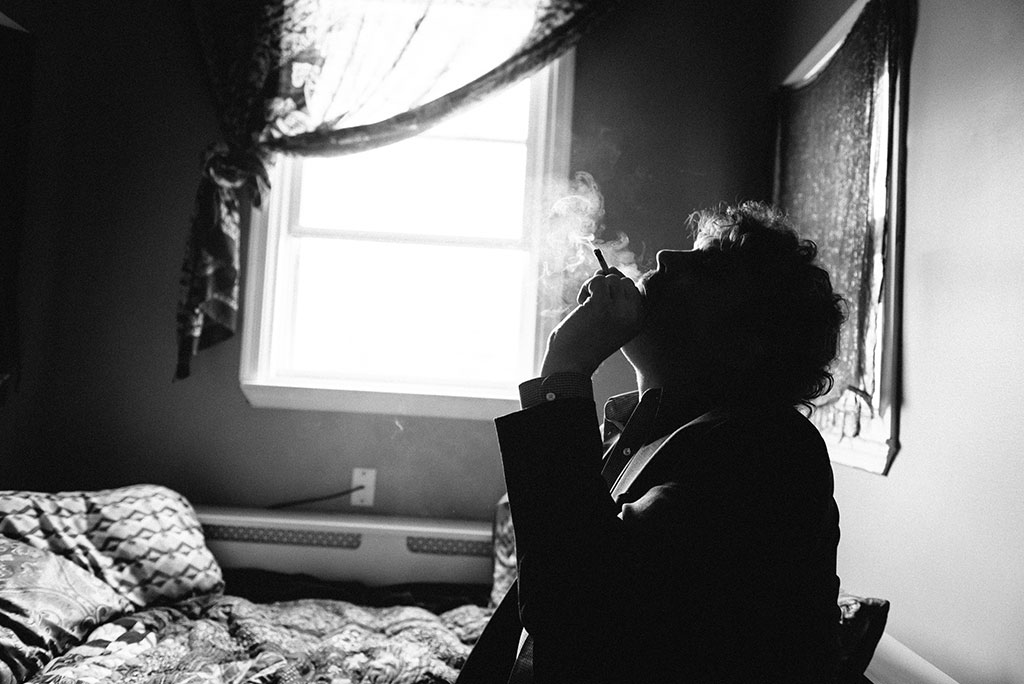
Or take David Umeh, who moved to DC from San Francisco in January to launch High Speed, an online juice and marijuana delivery service. Customers pay for the juice ($11) and then have the option of making either a $55 or $150 donation to the company. High Speed’s site is careful to avoid specifics, but customers can make an educated guess at how much weed to expect at those prices. Umeh appears to have a hit on his hands. After receiving some news coverage in early April, High Speed was so oversold it had to shut down the site.
And then there’s King Weedy Cannabis Collective, which sells big ticket items like $7,000 LED grow rooms, but also smaller items, like $80 weed travel kits that include rolling papers, a lighter, a pipe, a case to carry it all, and, you guessed it, a free gift: an eighth of Purple Urkle.
As for Eddie Williams, he and his partner are already looking to expand Grow Club.
Now that they have a physical space, they see new opportunities. When I visited in late February, they were busy transitioning the rooms behind the store into a “420-friendly” lounge. Lolly Amons (daughter of The Real Housewives of DC’s Mary Amons—the girl Tareq Salahi accused of stealing his car) was helping to paint the walls with murals. They’re not paying her, she tells me. She just thinks Williams has a cool idea.
Like the AG office’s Rob Marus promised, creative people will find new ways to capitalize on the legal gray areas. Grow Club now markets itself as “DC’s Official After Party Spot,” open Fridays and Saturdays, from 11PM to 5AM. Ladies enter for free; men pay $20. Or you can rent out the lounge for private parties. Grow Club will arrange catering service (“We don’t have a liquor license,” Eddie says), a DJ and event staff, and, of course, throw in some free edibles. I ask if Williams is worried about the neighbors. The police, after all, received "numerous complaints” about Nick Cunningham’s often noisy mobile weed business. “The Kush Gods offended people,” he tells me. Williams believes a low profile is best for business.
And if the party-planning takes off, Williams predicts even bigger things for Grow Club DC. “When I did the paperwork, I registered it just as Grow Club. If Maryland legalizes, we’ll expand there. I want Grow Club to be a publicly traded stock.”
They’re already planning to market on more platforms and to a wider audience: Williams’ partner envisions turning the back office of Grow Club into a multimedia studio where they will produce how-to tutorials on growing weed. They’re planning to use a front desk employee to help them make videos to break into the Spanish-speaking market. So far, they don't seem to have actually produced any videos, but Grow Club DC Latino has a mascot and an Instagram page, and the guys have reserved the Grow Club DC name on Youtube.
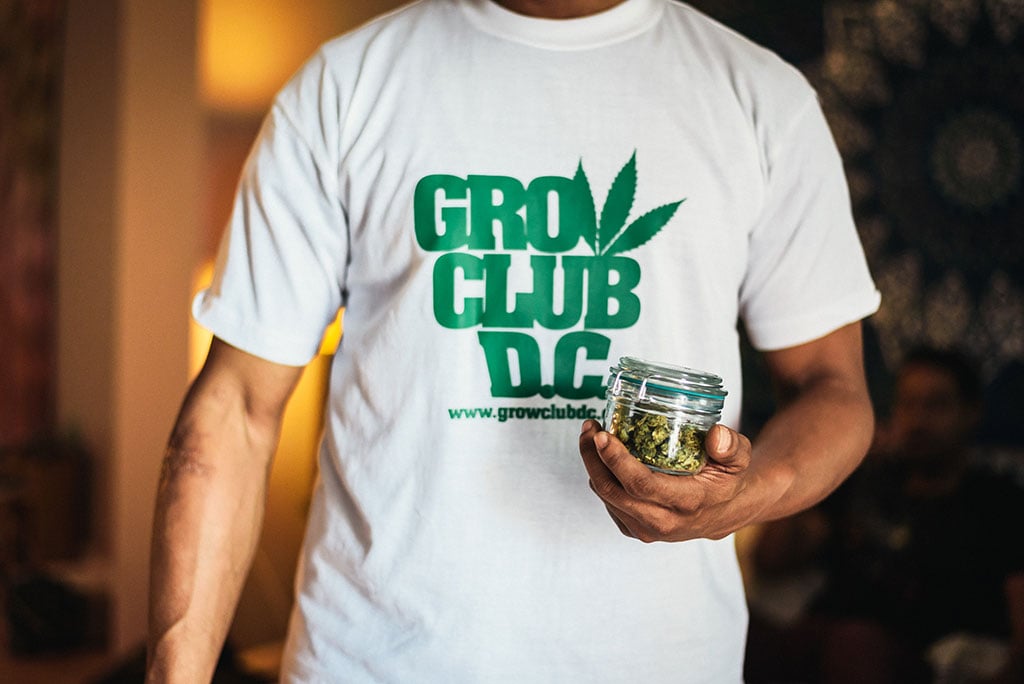
For its part, the DC Council is also making moves in anticipation of where the city's marijuana entrepreneurs may be heading. Earlier this week, on a 7-6 vote, the Council passed a new bill amending the Marijuana Possession Decriminalization Amendment Act of 2014. The amendment to the amendment bans the creation of private clubs for the consumption of marijuana. It's a vague and qualified ban on the social use of weed, but, for those pushing to see a legal regulatory system for the sale of marijuana, it signals trouble ahead.
Matt von Fricken wasn't sure where a business' liability would begin and end under the new law. How much control can a business owner exert on a customer's inconspicuous activity, like the consumption of weed via edibles? The new bill seems to perpetuate gray areas rather than eliminate them. "As a lawyer, I would tell my clients to err on the side of caution. But people right now are looking at what the law doesn't say to figure out what they can do." He predicts some of the new ventures in town are on a collision course with the government that will end in the courts.
Not all small business owners are so concerned. Williams, for one, prefers the current climate of uncertainty. "I'm kind of cool floating in the gray area. If they continue to keep it gray, the floodgates don't open." Williams fears companies from the West Coast moving in with their tried business and distribution models to squeeze out smaller ventures. "It would be like Walmart coming in and shutting down all the mom-and pops." The theory is that DC's untested legal waters make it unattractive to larger companies unwilling to compromise their established businesses to make in-roads here.
But is Williams concerned the Grow Club lounge in the back might run afoul of the new ban and endanger his grow store?
"We're not a private club," he assures Washingtonian. "We're a store with an extension that you could call a dope ass lounge, or an office, or storage, or a place to hold classes on growing." According to Williams, they've already had 11 students.
He talks vaguely about the political side of business in DC, and his interest in making the right connections, the right donations. “I’m not scared” of the ambiguous legal territory in which he operates, he says, “but I’m cautious and I’m cognizant. I’m trying to avoid shenanigans.”